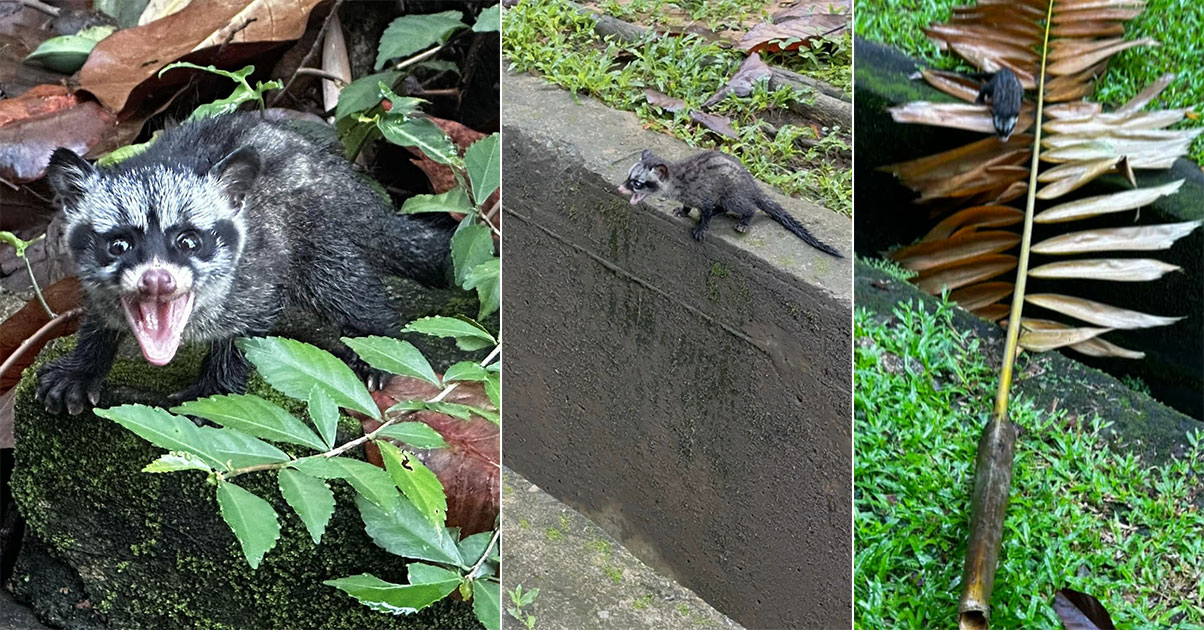Follow us on Telegram for the latest updates: https://t.me/mothershipsg
A woman in Singapore helped a baby civet get across a drain by laying down a fallen a palm frond to serve as a makeshift bridge.
She recounted her encounter with the tiny creature, which she chanced upon while out on a hike at Mount Faber on March 6.
According to the woman, the juvenile civet caught her attention as it was squeaking loudly.
She initially thought the sound emanated from "some birds" but then she saw a "little thing" with a "cat/ pig face".
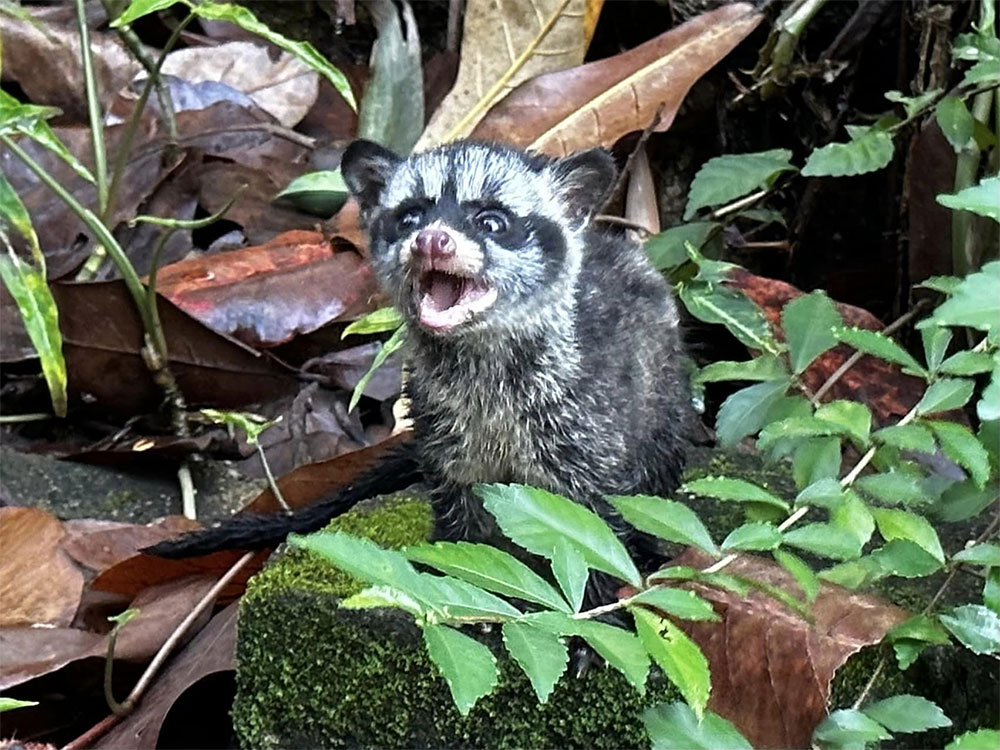 via Shirley Hwee Li
via Shirley Hwee Li
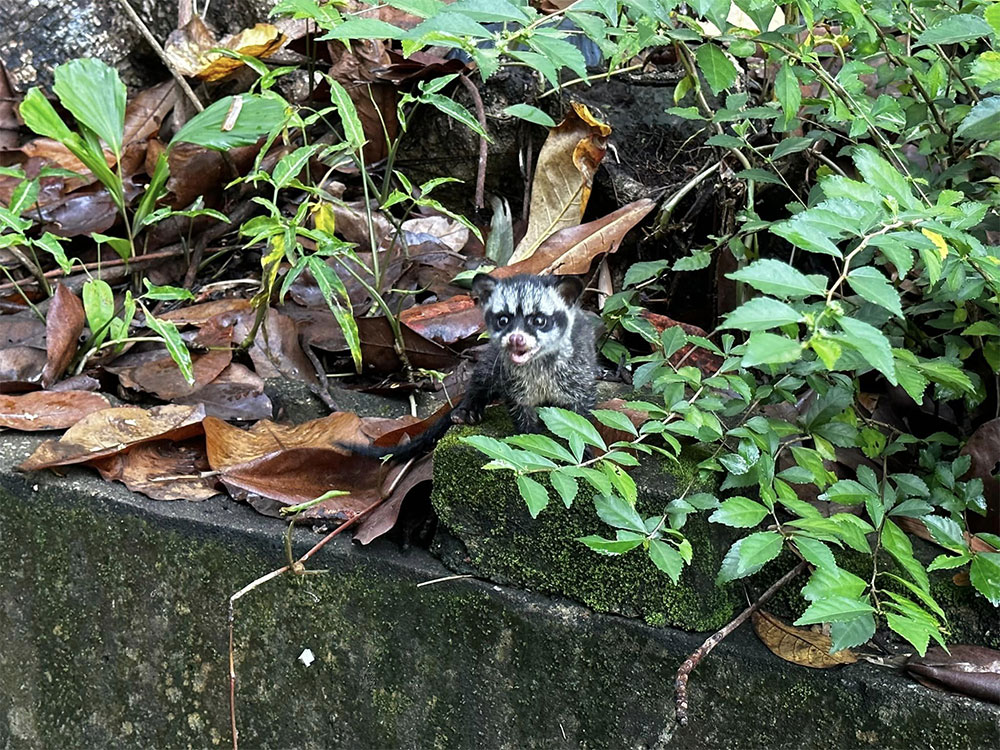 via Shirley Hwee Li
via Shirley Hwee Li
It turns out it was a baby civet that was calling out for help.
Wanted to get across drain badly
According to a series of videos and photos she shared, the baby civet appeared to want to cross the drain to get to the other side.
It was unaccompanied.
In her post, the woman said she got in touch with ACRES (Animal Concerns Research and Education Society), and was told to find a fallen branch to help the civet across.
The civet was initially seen pacing up and down a drain.
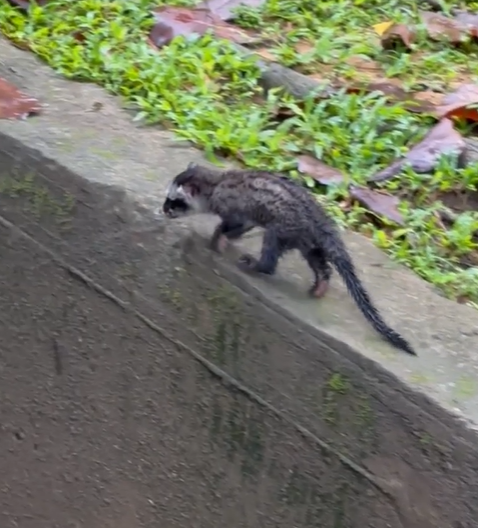 via Shirley Hwee Li
via Shirley Hwee Li
 via Shirley Hwee Li
via Shirley Hwee Li
It then tried to get across in an area with more vegetation.
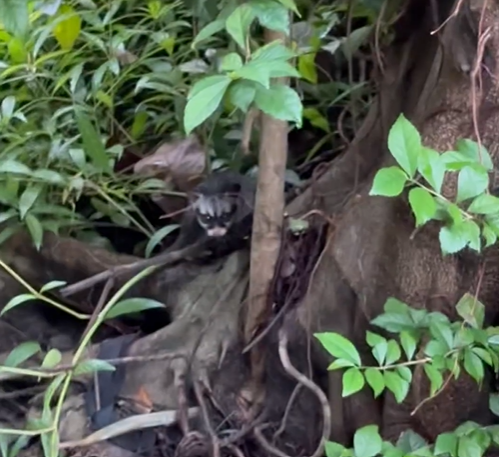 via Shirley Hwee Li
via Shirley Hwee Li
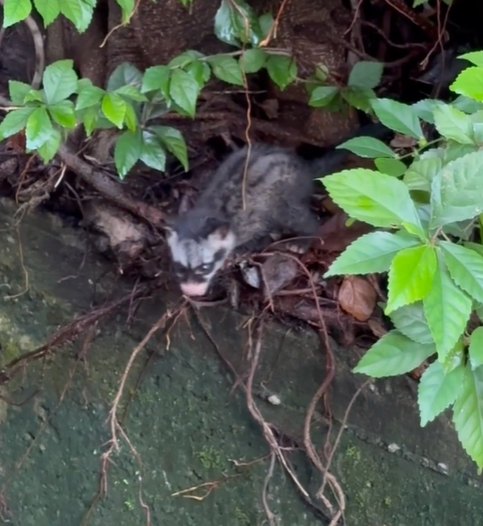 via Shirley Hwee Li
via Shirley Hwee Li
It even appeared to want to make a leap across, but did not.
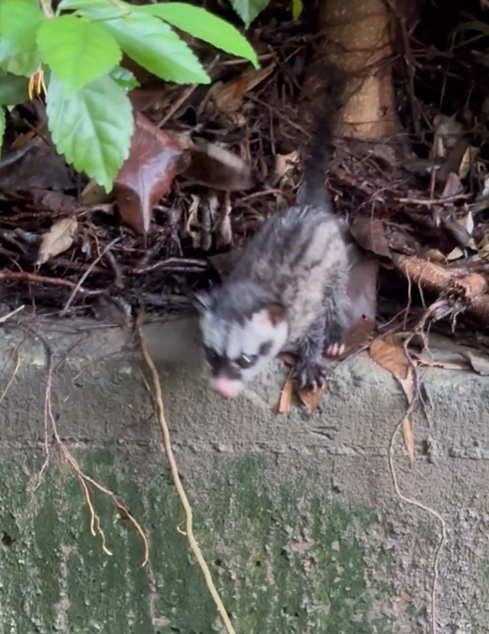 via Shirley Hwee Li
via Shirley Hwee Li
It then climbed up a tree in an attempt to find a way across.
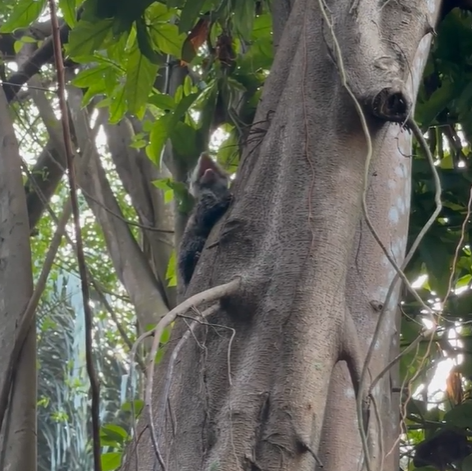 via Shirley Hwee Li
via Shirley Hwee Li
But then it climbed down.
At one point it tried again but almost slipped into the drain.
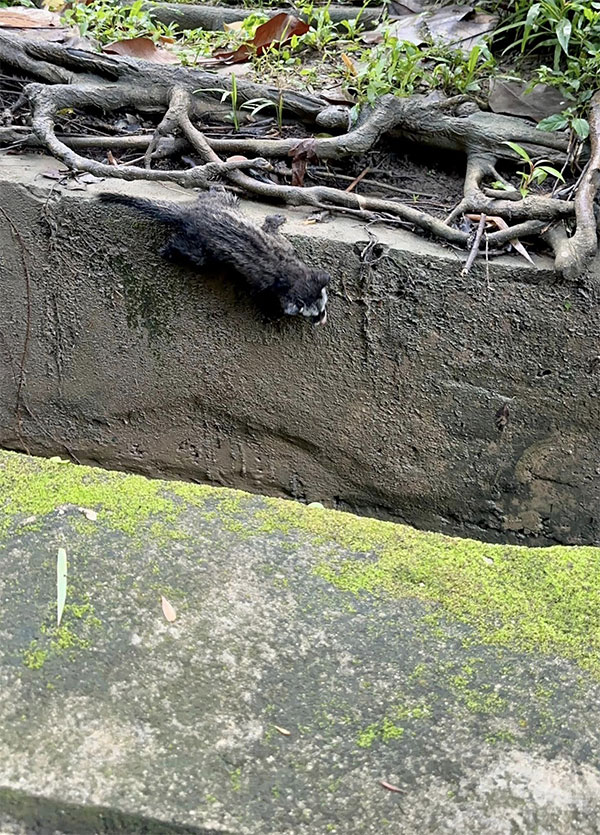 via Shirley Hwee Li
via Shirley Hwee Li
Despite trying multiple times to get across, the baby civet appeared to know that it could not go into the drain, or else, it would not be able to get out.
Eventually, the woman found a palm frond and positioned it across the drain so that the civet could climb across it.
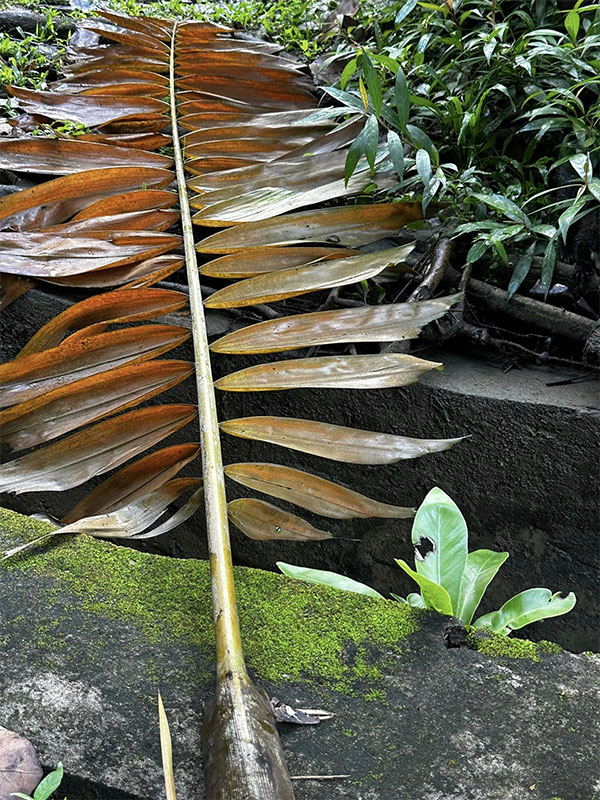 via Shirley Hwee Li
via Shirley Hwee Li
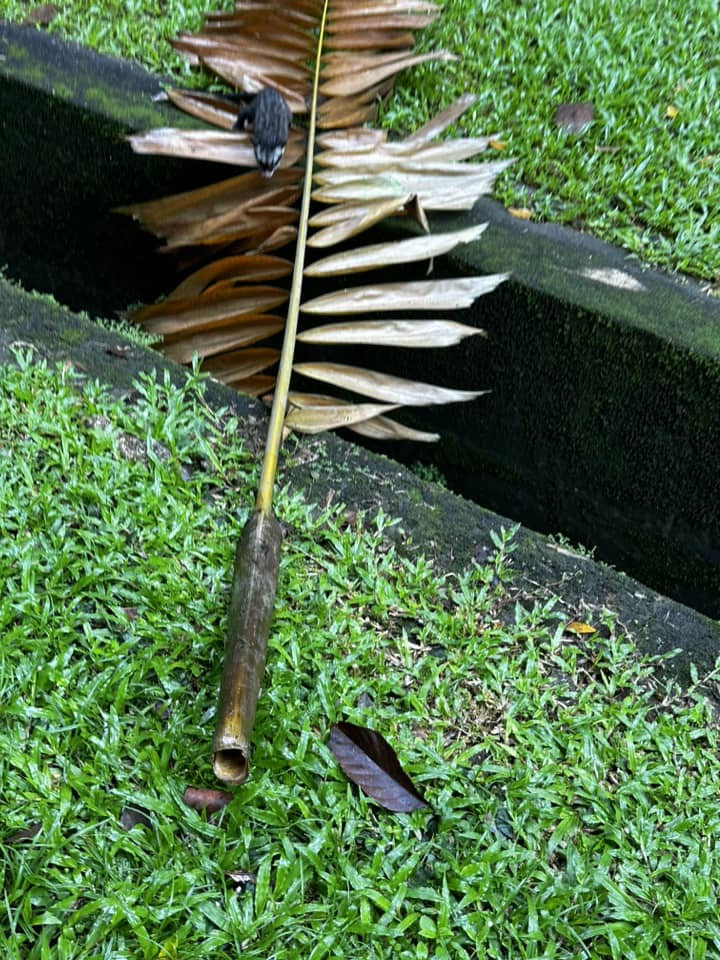 via Shirley Hwee Li
via Shirley Hwee Li
The civet then scampered away.
It appeared to know where it should be headed to.
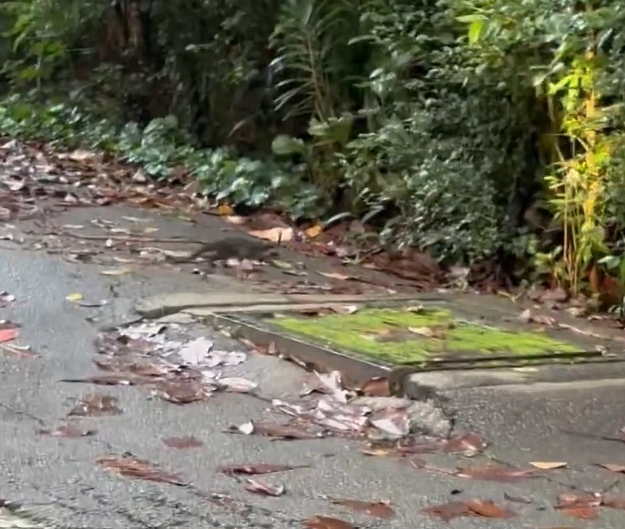 via Shirley Hwee Li
via Shirley Hwee Li
What are civets?
According to the National Parks Board (NParks), civets are commonly called "civet cats" and are also known as musang.
However, they are not cats but more closely related to mongooses.
These creatures have a long, sleek body, with short limbs, a long tail, long muzzle and small ears.
They are identifiable by their dark greyish brown body, with three dark stripes along the back and black spots on the sides, and a black "mask" across the face.
In Singapore, the common palm civet is commonly-sighted.
They are nocturnal in nature and prefer to stay in trees and high places.
Helplines
If you see a wild animal in distress, you can contact:
- ACRES Wildlife Rescue Hotline (24-hour) at 9783 7782
- NParks Animal Response Centre: 1800 476 1600
Related articles
All media via
If you like what you read, follow us on Facebook, Instagram, Twitter and Telegram to get the latest updates.
